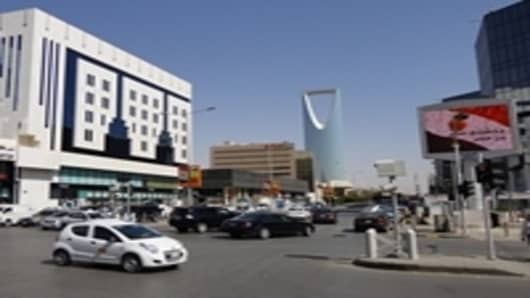Saudi Arabia's Central Bank Governor, Muhammad Al Jasser, said yesterday that "everyone" was concerned over the fragile state of the US economy and Europe's ongoing sovereign debt crisis, according to Reuters reports.
His comments did not provide a vote of confidence for the United States, nor for the Euro Zone, as he also said Saudi Arabia would not consider purchasing Euro Zone debt.
The Saudi Central Bank Governor was speaking after meeting with the Gulf Cooperation Council (GCC) Central Bank governors of Qatar, Kuwait, and Bahrain.
With the U.S. dollar under pressure since Standard & Poor's unprecedented US debt downgrade, speculation has also grown over whether GCC countries might consider revaluing their currencies.
Al Jasser said Saudi Arabia had no plans to revalue the riyal at this time, but he did add that the economic conditions in the Gulf are "excellent" for forming a monetary union, according to Reuters, something that’s been under consideration for some time.
Saudi Arabia, Bahrain, the United Arab Emirates, Qatar and Oman currently peg their currencies to the greenback.
While Al Jasser drew attention to the fact that Saudi Arabia is not interested in incurring risk by buying euro zone debt, he didn’t address any Middle East exposure to the euro zone debt crisis via other ties.
Outside market watchers, however, can point to possible risks for the area.
“I think there are a variety of ways in which the euro zone crisis is likely to impact other parts of the world including the Middle East," said Tim Fox, head of research & chief economist, Emirates NBD.
"Clearly there are trade links, and with continuing deteriorating economic conditions in the euro zone and the rest of the world, the trade exposure is likely to be affected. Parts of the Middle East likely to be affected include Dubai, which is very heavily linked into the global trade cycles and flows."
"One element which is always providing support for regional economies is the fact that oil prices remain relatively elevated and that is keeping both the ability of local government in the region to be able to continue to stimulate the economies if they need to," Fox added.
“So for the time being we feel relatively comfortable with the growth position in the GCC, but as we go into 2012 there are potential risks if the euro zone situation doesn’t stabilize and if the euro zone heads back into recession,” said Fox.


